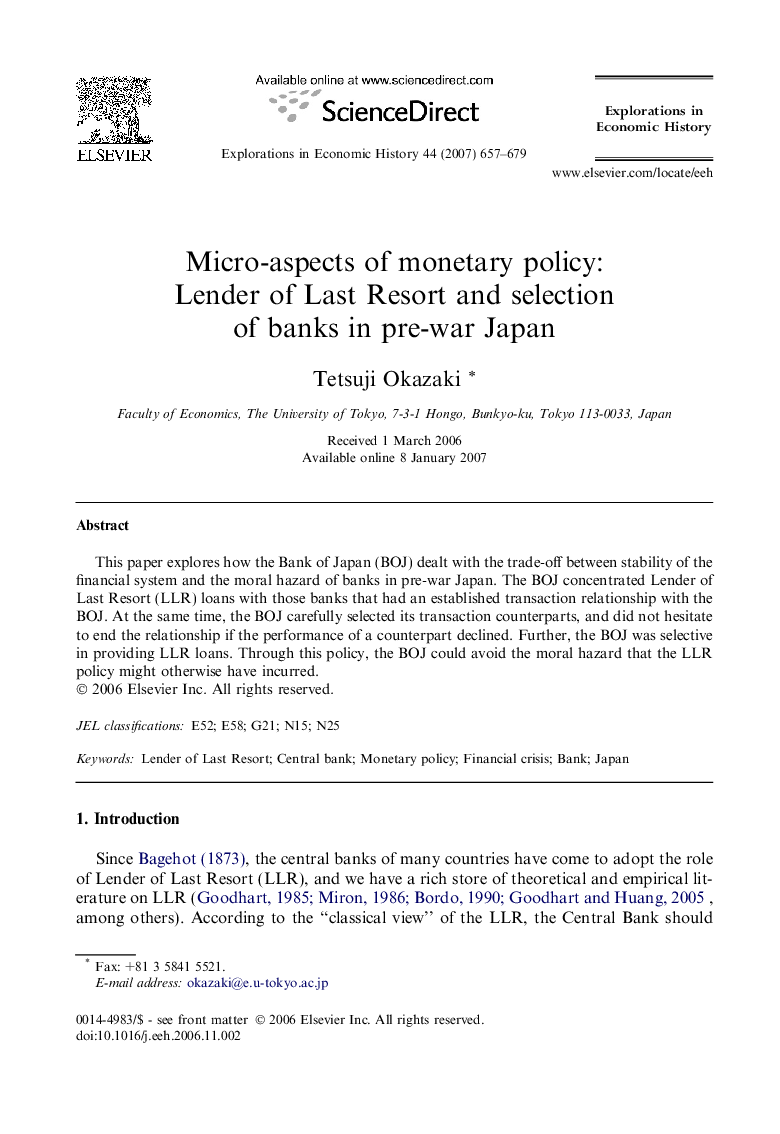| Article ID | Journal | Published Year | Pages | File Type |
|---|---|---|---|---|
| 5069026 | Explorations in Economic History | 2007 | 23 Pages |
Abstract
This paper explores how the Bank of Japan (BOJ) dealt with the trade-off between stability of the financial system and the moral hazard of banks in pre-war Japan. The BOJ concentrated Lender of Last Resort (LLR) loans with those banks that had an established transaction relationship with the BOJ. At the same time, the BOJ carefully selected its transaction counterparts, and did not hesitate to end the relationship if the performance of a counterpart declined. Further, the BOJ was selective in providing LLR loans. Through this policy, the BOJ could avoid the moral hazard that the LLR policy might otherwise have incurred.
Related Topics
Social Sciences and Humanities
Arts and Humanities
History
Authors
Tetsuji Okazaki,
